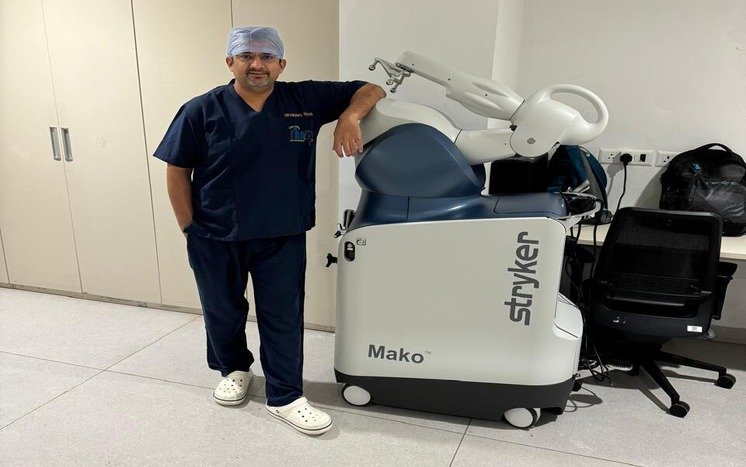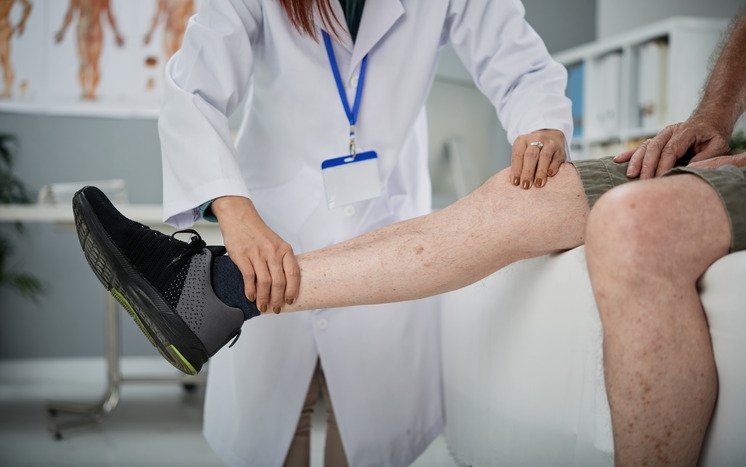
10:00am to 04:00pm (Mon to Sat) - Amrita Hospital, Faridabad
06:00pm to 08:00pm (Mon to Sat) - Arthrocare Clinic, Noida
10:00am to 04:00pm (Mon to Sat) - Amrita Hospital, Faridabad
06:00pm to 08:00pm (Mon to Sat) - Arthrocare Clinic, Noida
 October 12, 2023
October 12, 2023
Orthopedic surgeons play a crucial role in the field of medicine, specializing in the diagnosis and treatment of musculoskeletal conditions. These conditions encompass a wide range of issues, from sports injuries to chronic joint pain and everything in between. If you’ve ever wondered about orthopedic surgeons and their role in healthcare, here are seven essential things you need to know.
Orthopedic surgery is a broad field, and orthopedic surgeons often choose to specialize in specific areas. Understanding these subspecialties can help you find the right surgeon for your condition.
Understanding these subspecialties can help you identify the right orthopedic surgeon for your needs.
Becoming an orthopedic surgeon is no small feat. It requires years of rigorous education and training. Typically, the path to becoming an orthopedic surgeon looks like this:
This extensive education and training ensure that orthopedic surgeons are well-prepared to effectively diagnose and treat musculoskeletal conditions.
Board certification is a significant milestone in an orthopedic surgeon’s career. It signifies their commitment to maintaining high standards of patient care and staying current with the latest advancements in their field. The American Board of Orthopedic Surgery (ABOS) is the certifying body for orthopedic surgeons in the United States.
To achieve board certification, orthopedic surgeons must:
Maintaining board certification requires ongoing education and recertification exams to ensure that surgeons stay up-to-date with the latest techniques and best practices.
Orthopedic surgeons offer a wide array of treatment options for musculoskeletal conditions. These options can be broadly categorized into two main groups:
Treatment choice depends on the specific condition, its severity, and the patient’s circumstances. Orthopedic surgeons work closely with patients to develop personalized treatment plans tailored to their needs and goals.
Orthopedic surgeons are not just skilled technicians but healthcare providers dedicated to patient-centered care. This means they consider each patient’s unique needs, preferences, and circumstances when developing treatment plans.
Orthopedic surgeons take the time to listen to their patients, understand their goals, and involve them in the decision-making process. They prioritize open communication and ensure patients are well-informed about their condition and treatment options.
Patient-centered care extends beyond the operating room. Orthopedic surgeons collaborate with other healthcare professionals, such as physical therapists, to provide comprehensive care that addresses all aspects of a patient’s well-being.
Orthopedic treatment often involves a post-operative recovery and rehabilitation plan. After surgery, patients typically go through a period of recovery, during which they need to follow specific instructions to ensure a successful outcome.
Rehabilitation is a crucial component of the recovery process. Orthopedic surgeons work closely with physical therapists to develop tailored rehabilitation programs. These programs focus on restoring mobility, strength, and function while minimizing pain and discomfort.
Patients are actively involved in their rehabilitation process, and their commitment to following the prescribed exercises and rehabilitation plan plays a significant role in the success of their treatment.
Choosing the right orthopedic surgeon is a critical decision. Here are some tips to help you find the best surgeon for your needs:
In conclusion, orthopedic surgeons are highly trained medical professionals specializing in diagnosing and treating musculoskeletal conditions. Their expertise spans a wide range of specialties, from sports medicine to joint replacement and beyond. If you ever need orthopedic care, understanding these seven key aspects of orthopedic surgery can help you make informed decisions about your treatment and care. Remember that your orthopedic surgeon is a partner in your healthcare journey, committed to helping you achieve the best possible outcome and quality of life.





© 2024 Dr. Mrinal Sharma | All rights reserved. Designed and Developed by DigiTrend